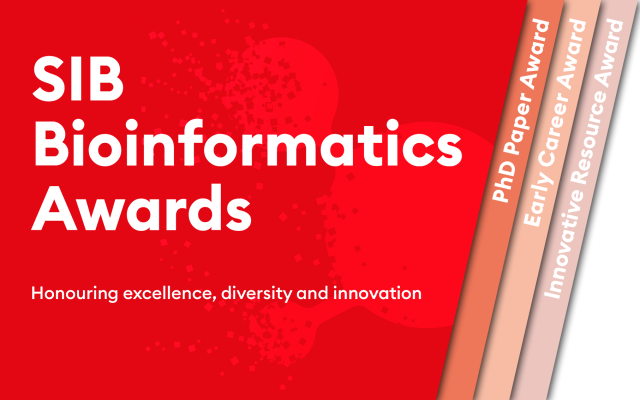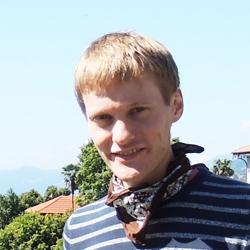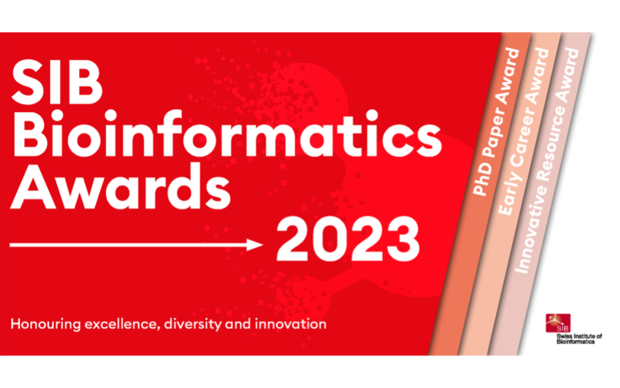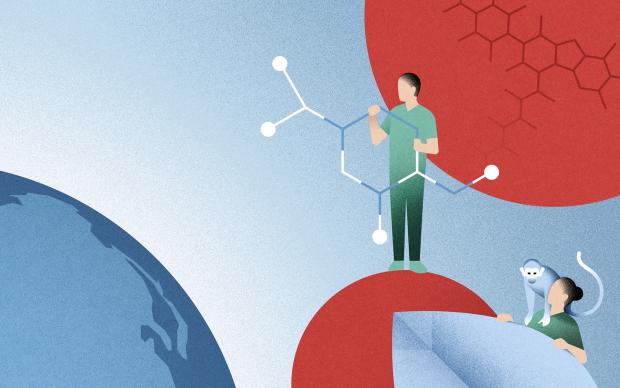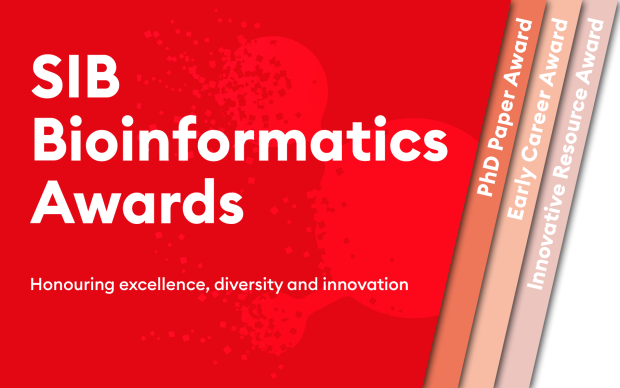Jakob Ruess – Co-Laureate of the 2012 SIB Best Swiss Bioinformatics Graduate Paper Award
Jakob Ruess received the award together with Christoph Zechner as co-author of the publication “Moment-based inference predicts bimodality in transient gene expression”. The paper was part of Jakob’s graduate studies in the team of John Lygeros at ETH Zurich.
Jakob now has a permanent Group Leader position in France. His team is affiliated to both the French National Research Institute in Computer Science and Applied Mathematics (INRIA) and the Center of Bioinformatics, Biostatistics and Integrative Biology (C3BI) at the Pasteur Institute in Paris. One of the key aims of Jakob’s research is the development of mathematical models that can be used to represent, understand and eventually control the dynamics of biological systems. To learn more about his research interests, visit Jakob’s group webpage and read our interview.
About the SIB Bioinformatics Awards and our interview series “Meet the past SIB Awards Laureates”
Started in 2008 as an initiative to distinguish young bioinformaticians in Switzerland, the SIB Bioinformatics Awards have gone a long way since: from a single national award to three different prizes today, honouring 1) international early career bioinformaticians (SIB Early Career Bioinformatician Award), 2) excellency within the Swiss PhD community (SIB Best Swiss Bioinformatics Graduate Paper Award) and 3) innovative bioinformatics resources (SIB Bioinformatics Resource Innovation Award). Throughout the years, 21 awards have been presented, with nine laureates recognized for their outstanding early career, ten Graduate students for their excellent publication and two bioinformatics resources for their innovative aspect.
In 2019, the SIB Bioinformatics Awards will be presented for the 10th time, providing a great occasion to reach out to past laureates and ask them where they are now in their career: this interview is part of a series inviting you to meet past SIB Bioinformatics Awards laureates.
At which point of your career were you when you received the SIB Award? How did it feel? What was the key interest of your research at this time point?
I was a PhD student who had just finished the first year! Naturally, receiving such a prestigious award so early in my career felt incredible. It really motivated me and surely, it also had an influence on the fact that I decided, and had the possibility, to pursue an academic career. The award was for a paper in which we developed a method that infers stochastic kinetic models from single-cell gene expression data and used it to characterize cell-to-cell variability in the response to osmotic stress in yeast. What I do these days is in many aspects still very similar to this type of work, but biology is moving so fast that the challenge always changes and renews itself.
What are your current research interests?
Among the "three Bs" of the C3BI, my work qualifies best as "Integrative Biology". I originally come from a statistics and probability theory background, but I am not so much into the “large data sets” and “machine learning” trends of bioinformatics. What really motivates me, is the fascination of developing mathematical models that allow us to explain and simulate how life is working dynamically and to also use these models in a synthetic biology context to design living systems ourselves. For now, this is only realistically achievable on a small scale, so we typically focus on studying some specific biochemical processes inside cells. For instance, we are currently working on using stochastic processes to model simple synthetic gene networks such as the "toggle switch" or the "repressilator" – simple networks, in which genes are either active (switched on) or inactive (switched off). What is really great is that we have our own biology lab at the Pasteur Institute and students who can build such networks to generate detailed data on their dynamics. Recently, we have also started to automate our experimental platforms. This sounds only like a mere technical challenge, but if you think about it a bit more and ask yourself what you can do with an intelligent and autonomous microscopy platform - which is for instance capable of optogenetically (Ed. note: using light) inducing gene expression in single cells and measuring it - you realize that an entire new world of possible experiments opens up. The platform stops being just a device to carry out your experiment and instead becomes an interface to interact with cells. I know that it sounds a bit like science fiction, but the idea is really to understand biology by developing computer programs that communicate with gene networks in real time. This will probably be one of my main directions in the next years, if I manage to find ambitious students or postdocs who are not afraid to depart on such a new scientific topic.
In your personal opinion, what is the single most fascinating discovery made possible by bioinformatics?
I do not really want to point to any one single discovery. What really advances us is the flow of science as a whole and bioinformatics is one of the engines that keeps this flow going. As I see it, thinking in terms of breakthrough results is born out of our human desire to categorize and quantify things, but it doesn't really do the real scientific process justice.
What do you like to do in your free time?
Honestly, I feel like becoming a scientist means also that it becomes increasingly hard to cut clear lines between work time and free time. Is the time that I spent answering this question work or free time? So let me answer this by saying that when I am not sitting at my desk, I enjoy discussing over lunch, a beer, or coffee the scientific, political, societal, ecological (and what not) state of the world with my colleagues and friends who come from all corners of our planet and who often have very opposing opinions. Lately, I have also been reading quite a few French books, since after all it is useful to learn the language of the country in which you live. When I go on holidays, I usually try to go somewhere quiet to escape the busy Paris for a while. Unfortunately, the Alpes are a bit further away than they used to be during my time in Switzerland.
Any words for the future generation of bioinformaticians?
In science in general, and maybe in biology and bioinformatics in particular, there are always some topics that are very trendy. There is nothing wrong about a topic being trendy. There is usually a good reason for this, for bioinformatics it is often that a certain type of data is widely available and the need for methods to analyse such data increases. Yet, what we do sometimes forget is that experimental technologies are evolving at a mind-boggling speed. So when we develop methods, we should also take into consideration what kind of data will likely become available in the future since otherwise our methods are always lagging behind the needs of biology. And to go yet a step further, I think that analysing data is not the only job of a bioinformatician. We also need to contribute to figuring out what data would be required in the first place to allow us to resolve open biological questions. This implies that we should actively involve ourselves in the development of experimental technologies or at least ensure that we have very good communication channels with people working on these things.


